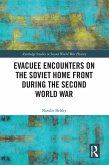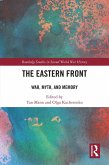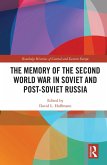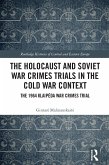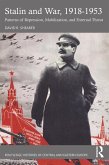The book considers the impact of this episode of massive population displacement across Eurasia on individuals, communities, and society more broadly. It explores how the challenges associated with wartime displacement gave rise to tensions between evacuees and local residents. These frictions, in turn, forced individuals to interrogate the meaning, terms, and limitations of citizenship and belonging in the Soviet Union. Evacuation thus played a critical role in the changing relationship between citizens and the Soviet state in the war and postwar periods. Furthermore, this study pays particular attention to the plight of Soviet Jewish evacuees, who constitute the largest contingent of Holocaust survivors in Europe, and the rise of anti-Semitism on the Soviet home front during the war.
This volume will be of interest to students and scholars of the Second World War, migration and displacement, the Holocaust, Soviet Jewish history, and the Soviet experience more broadly.
Dieser Download kann aus rechtlichen Gründen nur mit Rechnungsadresse in A, B, BG, CY, CZ, D, DK, EW, E, FIN, F, GR, HR, H, IRL, I, LT, L, LR, M, NL, PL, P, R, S, SLO, SK ausgeliefert werden.



